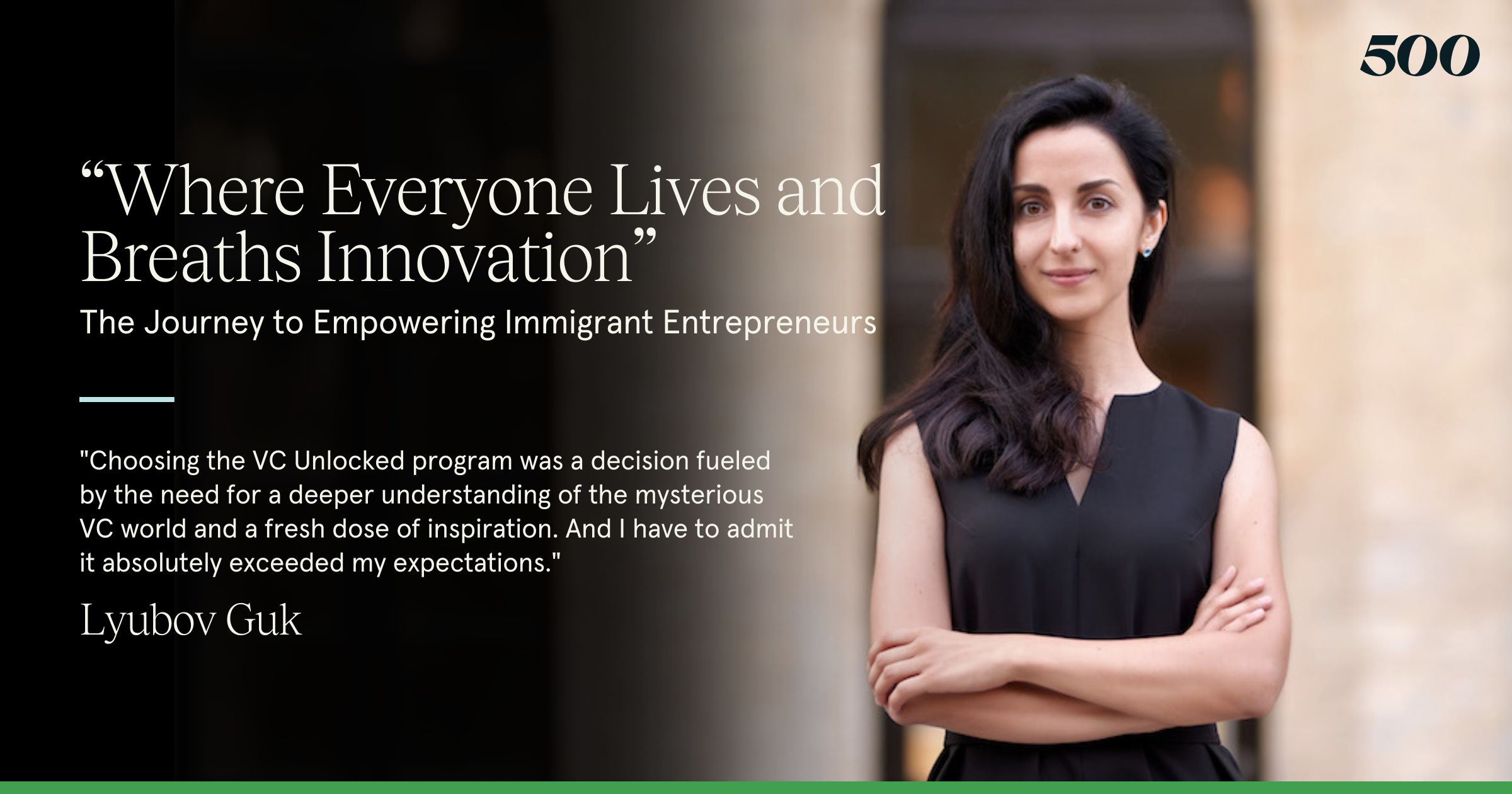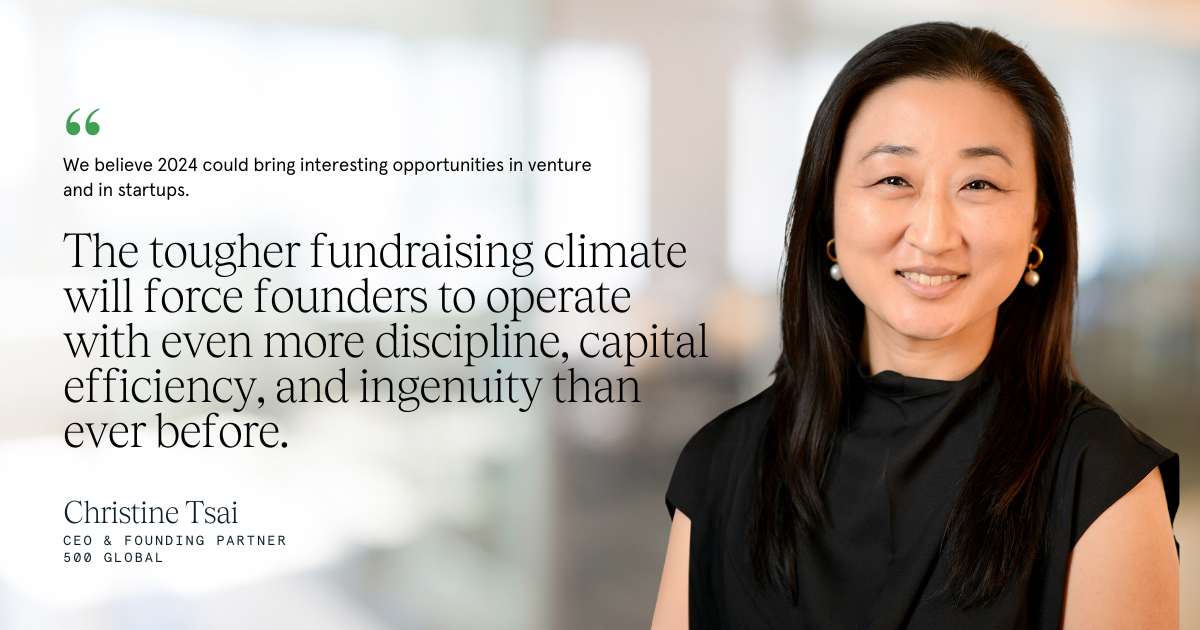As a founder you might be thinking, “Is a startup accelerator program worth my time? What could I possibly learn from a startup accelerator program that I couldn’t just learn on my own?”
I’d say if you have a network filled with prospective investors, employees, customers, and attorneys who have years of expertise on the ins and outs of your the particular market and industry your company is serving, and of course, the time to share all of it, you’re all set 😉
Don’t have it all? Here are 5 things you’ll learn, specifically from the 500 Startups accelerator!
1. The startup accelerator program keeps up-to-date on what is going on in the fundraising market.
The fundraising market is continuously in flux.
One area of flux is the amount of investment. In a span of 15 years, the private investment market has gone from contracting to expanding to contracting again. Many factors contribute to this caterpillar effect, here are a couple:
Fundraising typically expands during a period where companies have exited by either going public or have gotten acquired. As a result, founders decide to put their new funds to use by becoming an angel investor or contributing to private investment funds in hopes of receiving better returns than what public markets are providing at the time. Venture capitalists operate the same but manage other people’s money and receive it from limited partners.
Contraction soon follows an expansionary period, and how much depends on if there was a glut of companies that received funding, who couldn’t raise additional capital, were not able to successfully exit, or if limited partners and angel investors start pulling back and scrutinizing investment practices and areas. Usually, they go into a holding period until one of their investments has successfully exited.
As a busy startup founder, do you think you’ll have time to keep up with the flux?
In the 500 Startups’ Accelerator, our staff is dedicated to keeping up with these trends. You’ll have an opportunity to meet with them, and learn what matters to the success of your company, such as:
- how to grow your company to attract investment
- how much capital you need to raise
- which investors are actively looking at companies like yours and writing check
- what are acceptable or unacceptable deal terms, for you and your investors

2. The startup accelerator program knows how investors think and will prep you for meetings.
Another area of flux is how investors evaluate companies for the various stages of funding, e.g., Seed, Series A, B, C and so on. Here are a couple of examples of this flux:
10-15 years ago, a first-time founder who had built a prototype (irrespective of the industry they were disrupting) could probably get meetings with investors and raise around $250K of seed capital to get going. Fast forward, and today, first-time founders better have traction, traction, traction, and know what that means concerning their industry and business model. Not to mention having answers to questions like why now, why them, why they chose specific distribution channels, and how their product is defensible?
The investors who previously wrote $25-$50K checks to 10-20 founders are now deploying larger checks to fewer founders.
Plus, it’s hard to tell how an investor is evaluating your company.
- Did they say no because they have 10 other similar investments?
- Did they say no because they have seen 10 other similar investments fail?
- Did they say no because have talked to 10 founders like yourself, and they don’t think you and your team are the ones to execute?
- Did they say no because they think the market you are going after is contracting?
- Did they say no because they don’t understand how the market you are going after is expanding?
Hard to say, and you probably won’t get a ton of detailed feedback even if you ask! However, having invested in 2000+ companies, you can count on 500 Startups to teach you what will and won’t resonate with other investors.

3. The startup accelerator program connects you to other founders. You can learn how other founders run their companies.
Everyone has their style of leadership, but entrepreneurship can get pretty lonesome without a trusted peer group to lean on.
The 500 Startups’ Accelerator provides co-working as part of its 3-month startup accelerator making the daily grind a lot more manageable and friendly.
Here’s why other founders found it invaluable:
“At the low-point of my startup, I had a serious founder issue that I could only chat with my fellow 500 Startup founders. Thanks to 500 Startups’ accelerator for the great friends and family, who provided me solid advice and support when I was down.” — Aaron Blumenthal
4. The startup accelerator program stays up-to-date on the legal landscape.
If you’ve launched a product and are making money, do you need to worry about legal?
You have probably received advice like: “You don’t need an attorney to start a company!”
It’s when there’s a “people problem” staring right at you, such as a disgruntled employee, co-founder issue, or customer complaint that you think about getting legal counsel.
Even waiting until things go well is too late. Founders who start looking for counsel when they need an LOI, convertible note, or some other legal document drawn up become THE bottleneck to closing deals!
Not to mention that business law is also in flux.
Do you know what general solicitation means?
Case in point, as a founder you need to know what the boundaries of doing business are in the US and abroad. 500 Startups brings in attorneys to give talks and share best practices around building a company. They also showcase what to look for and how to work with legal counsel.
This alone ends up saving you $$$$.
5. The startup accelerator program provides access to growth marketers and growth marketing techniques
“There are many marketing channels. I’ll try them all till I find the one that works!”
However, do you have the budget, time, and energy?
You might think of hiring an agency or a growth hacker, but finding, vetting, and hiring them can be challenging!
The challenge with going with an agency is that they typically require a 6–12-month retainer and usually a minimum of $3K-$5K per month, not including ad spend. In case you’re curious ad spend, depending on your market, could be a minimum of $2K to $10K+ per month.
Hiring a growth hacker is similar to the agency, you’d need to hire someone on an ongoing contract and set aside funds for the ad spend.
The other BIG issue is that if you hire a growth hacker-slash-agency when you aren’t sure which channels your customers are on, you will blow through a fair amount of money running experiments. Of course, growth hackers and agencies don’t mind. They are getting paid to run experiments regardless.
Moreover, while they do their best, they cannot guarantee results immediately, which is why they ask for the retainer.
At the 500 Startups’ Accelerator, we’ll walk you through experiments, and help you optimize the results.
The 500 Startups’ Accelerator assigns each company an advisor focused on distribution. Their sole role is to help you grow, grow, grow.
These are experts who know what is and isn’t going to work and why, which saves you time, money, and energy!
Chandini Ammineni who runs 500 Startups’ growth program says:
“Startup founders tend to do what’s the next coolest thing in marketing, instead of what is right for them. Part of that is lacking focus and not knowing how to prioritize. The 500 Startups growth program, helps startup founders figure out next steps for the stage of their company. We have people on staff who have worked with hundreds of early-stage startups and have amassed a wealth of knowledge. They know what does and doesn’t work based on the size of a company, customer segment, product type, pricing, and other factors.”
Looking for help in these 5 areas and more?
Then apply to be a part of our startup accelerator’s upcoming batch here!



